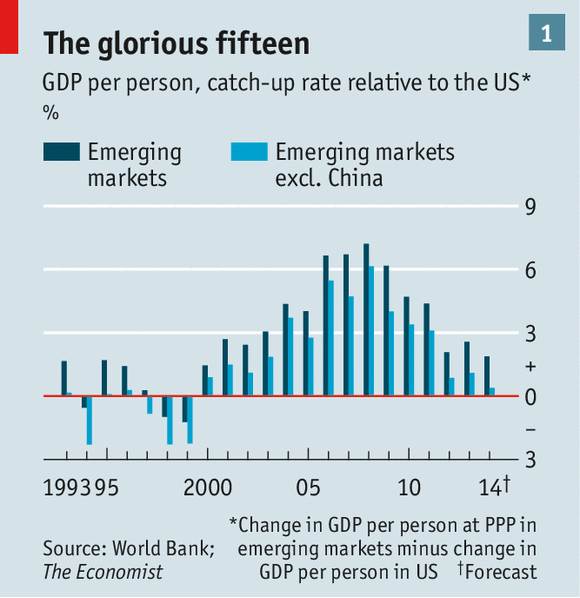
Farther north and west sits Guangzhou, capital of Guangdong province, with its newly constructed motorways and tower blocks among the rice paddies. Average incomes in Guangdong are just a quarter of those in Hong Kong, equivalent to Algeria or Costa Rica. Finally, toward the western edge of the watershed, the tributaries reach across Guangxi into Yunnan—provinces where the people have yet to get into the flow of China’s voyage of development. Incomes there are but a tenth of those in Hong Kong, on a par with those in Angola or the Republic of the Congo.









